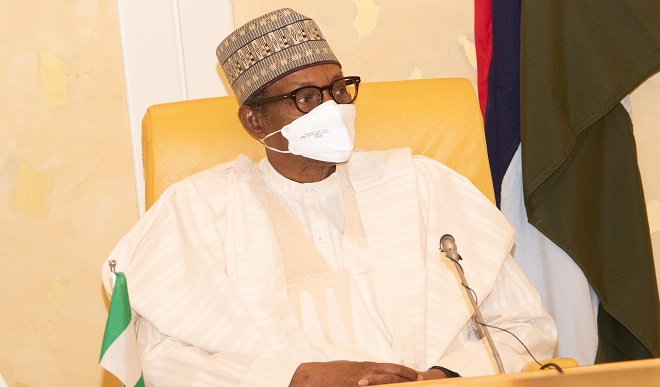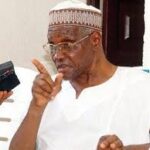Once more, another round of formal and informal debates has ensued over the recommendations by some officials of the International Monetary Fund (IMF), who visited the country under the provisions of Article IV of the Bretton Woods institution. The article simply provides for annual discussion between the IMF officials and the designated officials of the country under consideration. Hence the visit by the IMF officials was to avail the country a dispassionate appraisal of the state of the economy, a mirror view so to say, along with some other home truths. Among the recommendations by the team, is the now trending point that the Federal Government should withdraw subsidy on petroleum products and electricity tariffs, come 2022.
A major consideration of the IMF team in making this recommendation is the need for the Nigerian government to generate and conserve enough revenue for implementing the 2022 budget, and thereby reduce dependence on deficit budgeting as well as foreign debts. With this signal coming at this season of preparing the 2022 budget, palpable concern over an imminent rise in fuel prices has gripped Nigerians. From trending projections the pump price of Premium Motor Spirit (PMS), commonly known as petrol for instance, may hit an astronomical range of between N380 –N408 per litre, from the present N165. The fear over the IMF recommendation is not restricted to the populace but may have even hit the government of Muhamadu Buhari, the more given that 2022 is preceding the election year of 2023, and should be free from any negative for the government.
The foregoing notwithstanding, the development has cast a doomsday-like squall on the country’s public space given the traditional cycle of turbulence which fuel price hikes attract in the country. In any case, if Nigerians are worried they have a just cause to do so, given the recent increase in the prices of cooking gas and other staples for daily living, which are easily attributable to the style of administration of the present government.
Correspondingly, a gale of responses both for and against the recommendation has also been raging, with the IMF once more consigned undeservedly by some commentators, to the status of a gadfly and incubus of sorts, as far as they are concerned. To these Nigerians, the IMF message has only come to compound the pains which they have been enduring from the shenanigans of the present administration.
Interestingly too, reactions to the IMF recommendations include the ambivalent stance of the Federal Government which had been mooting the removal of fuel subsidy for some time without success, and may be finding the circumstance of the recent IMF recommendations as alibi to execute its intention. To oil its act, the government is offering to pay a palliative sum of N5,000 to 40 million Nigerians in place of the subsidy. Meanwhile having followed the subdued inclination of the Nigerian government to remove subsidy even before the visit by the IMF officials, the country’s mainstream labour movement – the Nigeria Labour Congress (NLC), has promptly launched a warning to stop the government in its track to hood wink the Nigerian public with what many see as the ‘Greek Gift’ of N5,000.
Of significance however is that the cacophony of reactions, may be blurring the fact that by and large, the IMF is simply a multilateral agency economic advisory agency that was established to provide among other services, a picture of the inner workings of a designated economy, in order to enable such country enjoy a dispassionate look at itself from a peer level assessment. In this context it needs to be appreciated that the IMF officials are not aliens to the world, but in most cases comprise economic experts who are often indigenous to the countries under appraisal. In fact, in the field of career prospects for economists, working for the IMF or any other such institution constitutes a high point in professional rating. Hence in pointing accusing fingers at the IMF, one could as well be attacking own compatriots who see beyond the ordinary due to their adoption of empirical tools for studying the economy. They are not guided by partisan political interests that will sway them into making subjective decisions in the name of proffering the so called ‘political solutions’.
Given that robust economic appraisals as feature in the routine study processes on economies by the IMF and other global development agencies, are procedurally derived from empirical contemplations and often yield impersonal deductions, it is not surprising that not many countries that go through the IMF crucible, are comfortable with its prescriptions. Put otherwise, in a world where as Nigerians will put it “even if monkey no fine him Mama still like am”, it will not be surprising that whatever the IMF will say about Nigeria, which does not flow along with the mindset of the powers that be, may not fly. This is more so when such a recommendation will definitely impose significant privations on the wider cross-section of the Nigerian society, as the issue of fuel subsidy removal is inevitably.
In the final analysis therefore, the truth remains that whatever prescriptions the IMF or any other global authority proffers needs to be considered strictly on the basis of the integrity of the processes that yielded such insights, and not on the grounds of whose ego may be hurt. Against the backdrop of the performance of the Buhari administration in the past six years, it had serially demonstrated significant dissonance with the prescriptions of the IMF, and is like the guilty, while being uncomfortable with its track record, may also want to play a cover up.
It is on this note that the Federal Government needs to proceed no further in error and compounding its sins, given its limited room to maneuver with respect to the IMF recommendations. Having led the country with a profligate style of administration, 2022 will be a season of reckoning for the Buhari administration, especially with respect to its plans to facilitate a continuation of the grip on power by its political party APC, in the 2023 general polls. With little indication that it may change style, the remaining days of the administration will provide interesting lessons for the country.

 Join Daily Trust WhatsApp Community For Quick Access To News and Happenings Around You.
Join Daily Trust WhatsApp Community For Quick Access To News and Happenings Around You.


